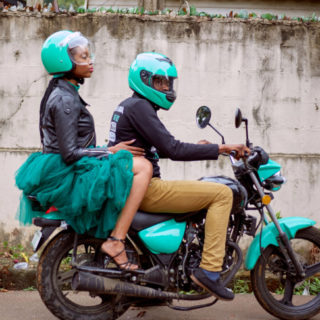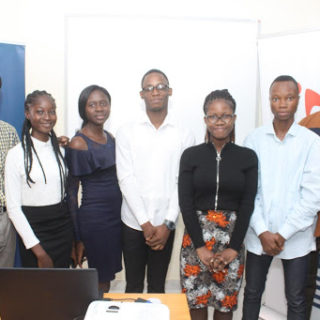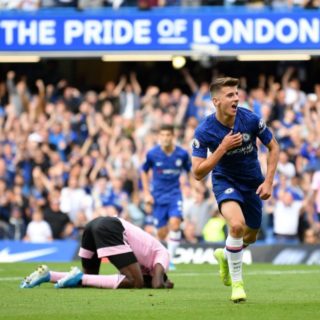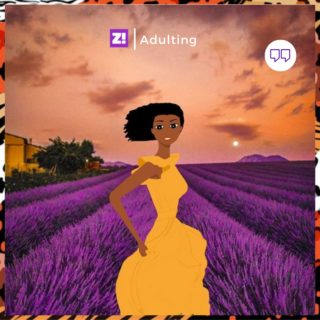I wasn’t the most chatty kid growing up.

It started as being the quiet one among my cousins. Later, I was the kid in the corner of the class who you wouldn’t notice until you had to. Let’s get it straight, I was problematic, but more often than not, mute.
I didn’t recognise my own voice until well into my late teens.
I had stuff to say – I like to think I wasn’t stupid. But it felt like all I’d get in return would be ‘hmm’ and ‘ahs’. The payout just wasn’t worth it.
It also meant I had few of those conversations where boys get inspired to tug on their own body parts.
In your teens, being introverted can mean you’re just that… introverted. But when you’re the cool young couple’s kid, born and bred in restless Mile 12, a market town in Lagos, you’re super weird
My parents didn’t know how to deal with it. Before you reach a certain age, your old guys are like a compass.
They’re your guide book; your CPU until you have enough sense to do your thing.
In my case, all they could do was pay attention, talk and hope. They didn’t know how to guide me, because there was no feedback; they had no idea what kind of kid I was.
Then in 2001, a few months after my eighth birthday, I met 2face Idibia. It happened on a shelf, in our neighbour’s living room.
I was introduced by a namesake who was at least a decade older.
Like most kids, I weaned on the music my parents loved. My mum did chores while giving backing vocals to the Levert Brothers, Kool and The Gang, The Commodores and Parliament Funkadelic.
My father, the stoic Ibadan man that he is, only had ears for Lagbaja.
On sunny days when the Super Eagles had done us proud, we’d celebrate with a bit of Shina Peters.
The sauce lived next door
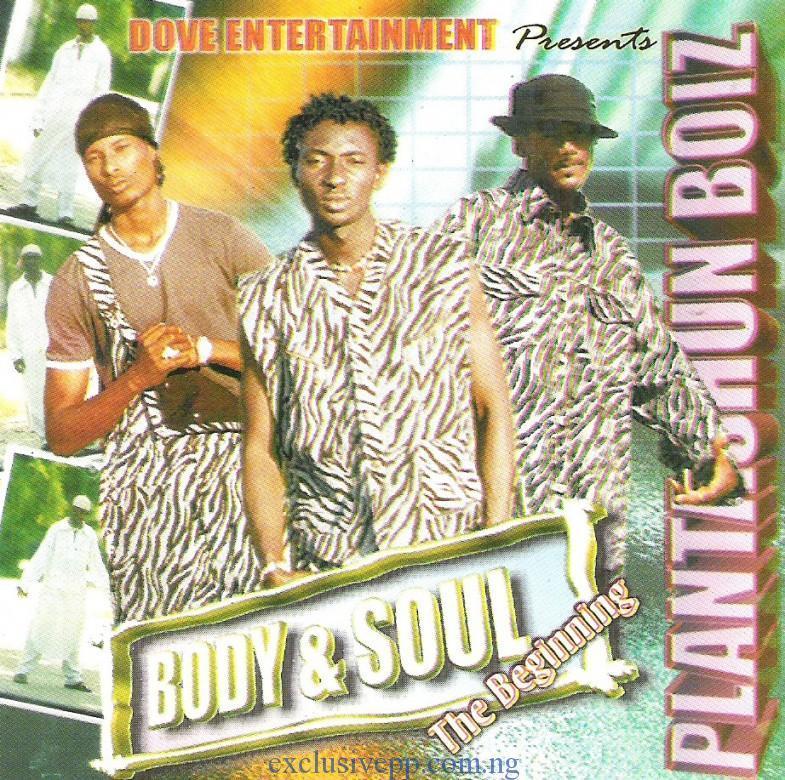
Somehow, Brother Segun – my older friend and his family had managed to collect an entire shelf’s worth of Nigerian music over the decades.
I remember seeing Victor Uwaifo’s 1972 classic “Talk of The Town – Ekassa” propped up on the top of the shelf. That was the space reserved for the greats.
But it was a cassette tape a few levels lower by a band still working their way to the top that caught my eye – “Body & Soul Vol. 1” by the Plantashun Boyz.
I have a few vivid memories of that time. After we left Mile 12 in 2004, I trashed most of my memories.
But I can never forget the first time I heard ‘Baby Don’t You Know?’. 2face’s voice struck me. It was smooth but uncertain, too juvenile for this guy who was supposed to be the group’s ladies man.
That anxiety made him seem the most human member of this new, hot group.
This was the first likely pop star of my generation – and he didn’t even sound like it. I had found a friend.
Over the years, I would come to listen to and follow 2baba religiously.
At the time when “Body & Soul” and the follow-up “Sold Out” came out, 2face was still figuring life out. I myself had a few problems. Whenever NEPA was benevolent enough, I and Brother Segun would lose ourselves in whatever music we felt like.
I listened to 2face more than anything else. Gradually, I learned his pidgin, and thanks to “One and Only” learned the beauty of harmony.
Then, as 2003 wound down, our neighbours became one of the first to make that famous move to Ikorodu. I hardly slept that night.
But though sorrow may last for four hours on a lonely night, joy cometh in the morning in the form of mirthful gifts.
My guy had dropped a few dubbed cassettes in my mum’s kitchen cabinet as a parting gift.
The story of 2baba’s split from Plantashun Boyz is one of the most infamous in Nigerian music history
After two strong albums and some infighting, 2face decided he wanted to strut out on his own. “We had all known we would do some kind of solo stuff, but that 2004 was when I just decided I would do my own stuff“, 2face would say in an interview 14 years later.
For many fans, the burning question was whether this delicate singer had what it took to survive the murky terrain of Nigerian music on his own. 2face was an interesting, if unproven entity who had just chosen the blue pill. I was in JSS. 3.
Nothing really prepares you for the power that comes with being a senior in secondary school. After years of being oppressed, you suddenly find yourself in long-sleeved shirts and trousers. It can be a beautiful time.
But while my friends were hunting for JSS1 students to traumatise, I was worrying over the next phase of our badly scripted lives – university.
I had missed the first term of secondary school because private school was too expensive and Kosofe College, our local secondary school, was out of the question.
And while things had changed since then, I feared a degree would be out of reach.
This was when “Nfana Ibaga” came out.
“I’m coming out straight this time, I’m coming out with a little of my own kind of peace of mind’
‘I’m doing it my way this time, like I’m not gonna bore you with some flimsy kind of piece of rap.’
So pull a cushion, sit back, relax and listen to this introduction of me, myself and my mission.
My vision is to let you all see, that there’s more to life than just faking up reality”
Of all the songs on 2face’s debut, “African Queen” has been the most impactful.
But the lesser known “Nfana Ibaga (No Problem) was 2face’s original statement of intent. He was getting a lot of tough love from people who blamed him for splitting one of the most important boy bands in Nigerian music.
At the same time, he had to prove his worth outside of the group.
How did he respond? By pulling the typical Nigerian and letting everyone know he was putting himself on the side of fate, his conscience and God.
“No matter what them do, I’m gonna make my dough, so the reason why I say ‘Nfana Ibaga o’ is ’cause who God has blessed, no man can curse”
Before agnosticism began to make sense to me, the idea of God as an all-seeing helper was etched deep in my psyche.
To me, this phrase was more than just a line in a song; it was the calming answer no-one had been able to give. God’s blessings trumped everything else.
And because faith was all he asked, all I had to do was believe. I wrote it everywhere in different fonts, and rather stupidly, at the bottom of the question papers at all the O-Level exams I wrote in 2007.
I got into the University of Ado-Ekiti later that year.
15-year-olds have no business in Nigerian universities.

Everywhere I went, Ado’s elder statesmen saw a living, breathing ATM. So I paid for “coming to their university when I was still a child” by getting jumped and running errands.
What did I expect? I had come to study law in a place where there was no power and lecturers came to class on a whim. The obvious choice in such situations is to ‘accept your fate’, and most of my peers did.
But the innocence of youth can push the best of us to fight what we know to be losing battles.
It didn’t help that I was listening to a lot of hip-hop at the time.
Lil Wayne begged me to do as I wished. And Jay-Z asked me to recognize the power of self. But 2face was still among the most played artists on my Nokia XpressMusic 5200. It was 2010.
He had just put out “Unstoppable: The International Edition” and was still the big dog of Nigerian pop.
Here, I was in Ado, a lost puppy, and real life was happening to me.
Bruises, citations and endless warnings that I’d be sent out of the faculty were all I got for my rebellion.
By my third year, I was worn out. All I wanted, more than anything, was to be free, free like a bird.
2face wasn’t having it great either.
The four years after his debut “Face 2 Face” had put him on top. The four years after “Unstoppable” saw him land everyone else to a breed of energetic, preppy pop stars. His next three albums were poorly received.
They had gems like “Only Me” but the music didn’t hit the heights of his older work. His personal life had also gotten pretty messy over that period.
Squabbles over alleged infidelity and near death experiences had come with this new phase of his life. But vampires never die.
And over the next few years, much like an exhausted young writer would deal with a reality he was tired of, 2baba seemed to let life happen and take his winnings as they came.
Iheneme was an unusual party song from an everyman prophet. It was the soundtrack to my 2013; the year I chose party floors over lectures and my first love, writing.
The music of my nihilism didn’t last long though. I remember a particular episode in my final year when we were given forms to fill out for the annual yearbook. One of the questions asked, “Who’s Your Role Model?”.
I wrote “Nasir Bin Olu Dara Jones/Innocent Idibia/Insanul Ahmed”. One was an American hip-hop legend I’d first stumbled on while skipping classes. The latter was a pop culture writer who I most admired at the time.
This paper fell out of my distracted hands and on the ground. Some overzealous colleague of mine grabbed it and began passing it around.
But that is a story for another IG caption – same as 2face’s name change to ‘2baba’.
I was a young journalist on a day off, slapping away at my keyboard when I first heard “Amaka”, 2baba’s return to form in early 2018.
Over the next few weeks, my colleagues, three of the best entertainment journos around, argued endlessly over whether 2baba had a solid hit.
Osagie would infamously say he didn’t rate Amaka on Loose Talk and get dragged for it.
Safe to say, opinions differed, and I would try to chime in over their raucous conversations; sometimes, successfully, but more often than not, like on that same episode of Loose Talk, to no avail.
I still am not the most chatty person around.
The first reaction to most things I say is the inevitable “What did you say?” or the more direct “I didn’t hear what you said’.
At my loudest, I’m likely to have my arms in free flight while I jump around and contort my face in pidgin English. It’s for all intents and purposes, a performance, not unlike 2baba having one of his moments on stage.
In the years since Iheneme and my first music reviews, I’ve asked myself many variants of one question.
Why do we love our favourite artists?
My brother, a boisterous stylist who swears by Zlatan, thinks it’s because we see ourselves in them, like kindred spirits connecting over Apple Music & live shows.
I agree only to an extent. There is a reason why aspiration is a big part of pop music. Our favourite artists are the ones we connect with on a human level. The ones whose stories and evolution we are most invested in.
We project our fears, hopes and ambitions onto them; in the hopes that time and their growth will validate our support, and in a larger sense, our selves.
I often wonder what I’d sound like if I’d not heard 2baba’s music.
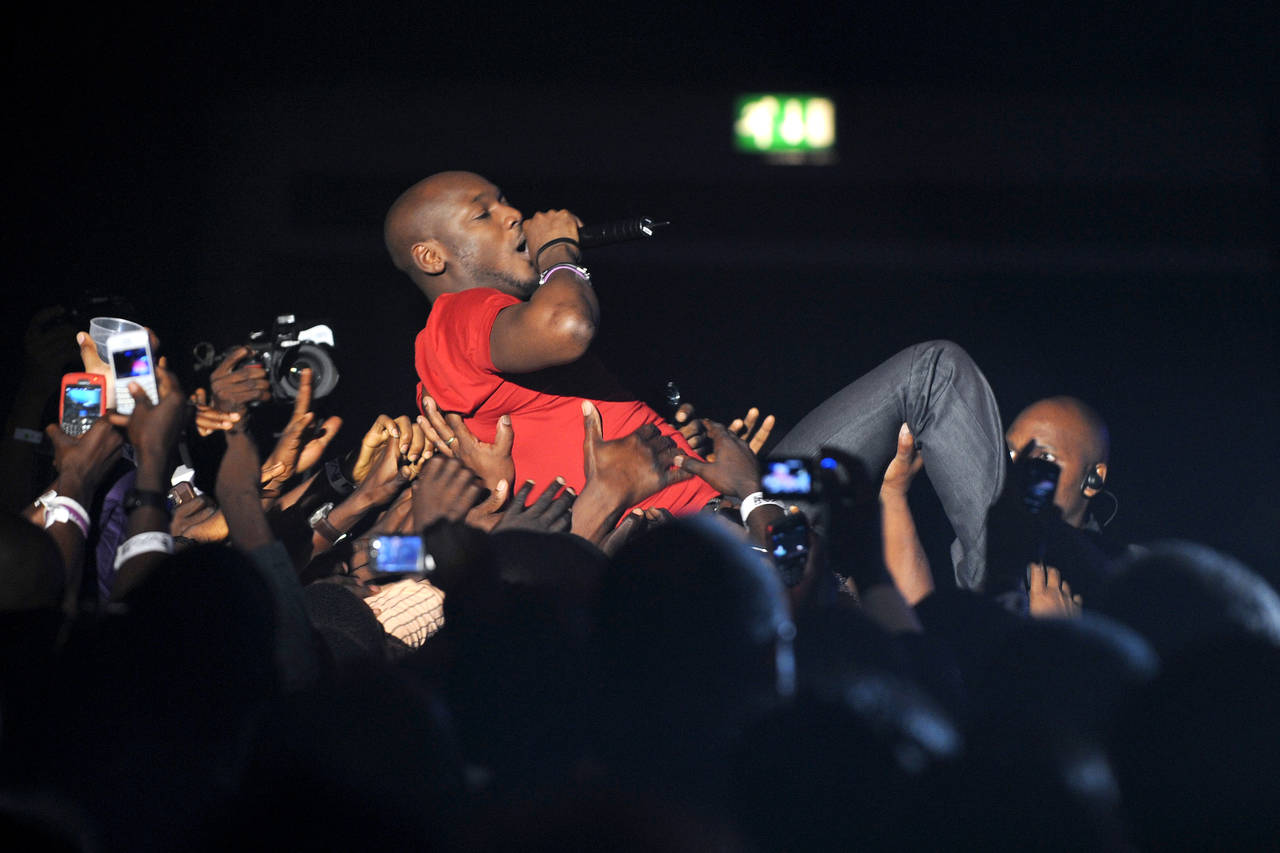
Maybe I’d have found what I needed in someone else – like Eedris Abdulkareem with all the learnings that come with such fandom.
What if I’d not developed the interest in his label troubles and Nigerian music that’s led me to document pop culture a decade later?
Maybe I’d have stayed at that law firm in 2015 and spent the last four years chasing high court victories.
Would I have learned to take life as it comes if I’d not seen 2baba stumble through 2009 – 2012?
2baba hasn’t always been nice to me.
I skipped school one Friday in 2006 to see him live for the first time at the Teens Festival of Life in UNILAG.
Later that day, while I was singing drunkenly in white corduroy, one of my classmates was asking my sister why I was not in school. My baby sister, the angel that she is, went home to ask my mother the same question.
Between 6 and 7 pm that evening, I realised Nigerian kids develop their martial arts skills while trying to escape beatings.
If raising a child is the same as helping them figure life out, then 2baba has more kids than he’s told anyone.
As someone obsessed with larger-than-life personalities, he was the one person I never saw two versions of.
Here was a man who was blind to his own limitations, who was so confident that he would let everyone down and keep going.
Perhaps the most important lesson I learned through the years is the simplest.
That self-belief and a willingness to show up, regardless of the odds, are as important as anything else; because who God don bless, no man can curse.

